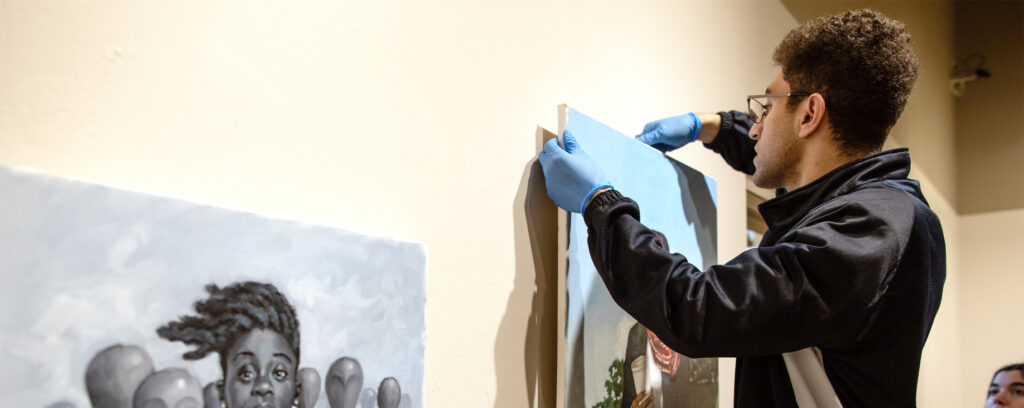
Brian Michael, a media arts and game development student from Sycamore, Illinois, places 12 works by painter Jerry Jordan. Brian created art installation software for the gallery, which takes the dimensions of the paintings and the wall, so he can determine the correct placement and spacing for the art. This software saves workers from hand-measuring and manually working out the placements. (UW-Whitewater Photos/Craig Schreiner)
Brian Michael, a media arts and game development major from Sycamore, Illinois, still beams when he talks about being paid to do programming for his campus employer, Roberta’s Art Gallery, located in the University Center at the University of Wisconsin-Whitewater.
“It sometimes gets to be a bit of a bother finding all of the measurements and making sure everything is evenly spaced and what the height should be,” said Michael, referring to the challenge of hanging a new exhibit on the walls of the gallery. One day he realized he likely had the skills to create an art calculator program. He went to his supervisor, Tonia Kapitan, the services manager who oversees the students who run the gallery.
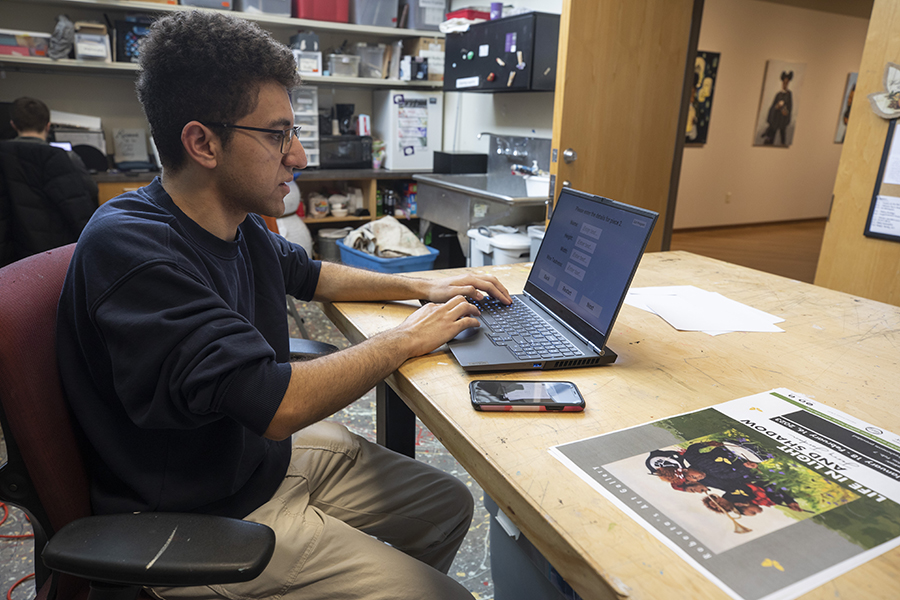
MAGD student Brian Michael works behind the scenes at Roberta’s Art Gallery in the University Center.
“I said I could make a program to solve this problem,” remembers Michael. “She said ‘that’s cool. I’ll pay you to do it.’”
Michael spent his winter break creating the program he calls Primis. Based on the information it receives on the dimensions of the walls and art, the number of pieces of art and other details, Primis shows the user where to put the screws into the wall so that art is perfectly spaced and hung. Michael found he even could outdo other art calculators with powerful visuals in Primis.
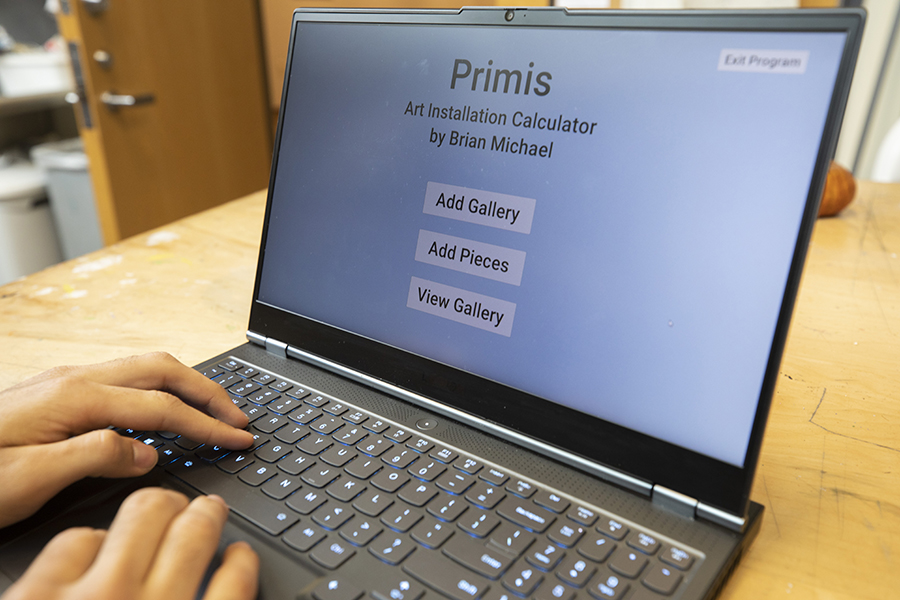
Brian Michael created Primis, an art installation software program, for Roberta’s Art Gallery in the University Center, where he is a student worker.
“My program gives a virtual gallery that shows the wall in its entirety so you can see what it will look like with all the pieces on the wall,” said Michael. “You can hover over a piece with the mouse and visual arrows show how far from the ground it should be and how far apart from other pieces.”
The task wasn’t easy. Michael painstakingly worked out each step in the programming process until the day he and his co-workers were ready to test-drive the software in the gallery.
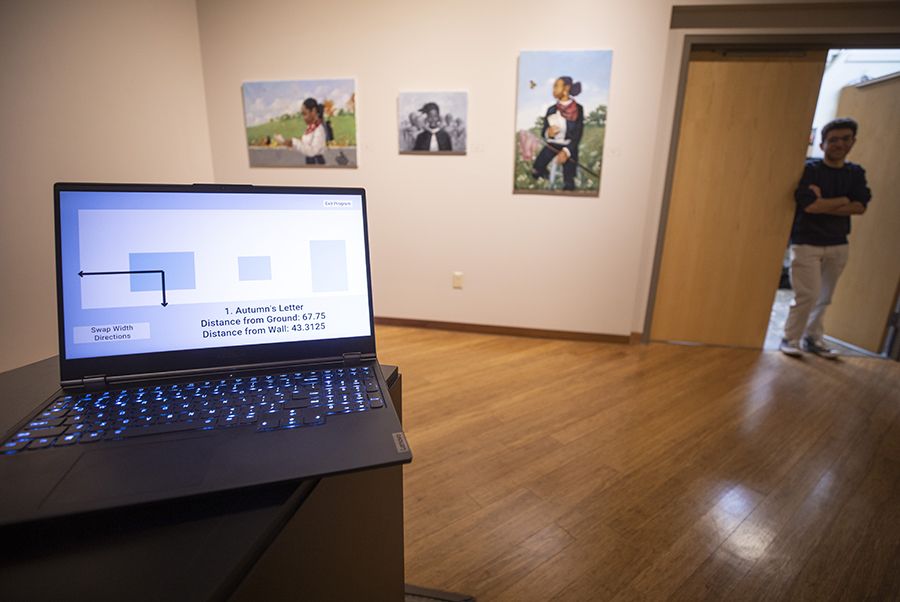
Brian Michael, in the doorway, created art installation software called Primis so he can determine the correct placement and spacing for art in Roberta’s Art Gallery.
“I could see their eyes lighting up because the burden of having to do all the math by hand was gone,” said Michael. “Tonia knows how much I do with my major and I think she was as almost as happy as me when it worked.”
Michael said he came to UW-Whitewater because its MAGD major was focused on game development and relevant programming while other programs were more general. He said his game development professors encourage students to use their skills in innovative ways.
“My professors say that if you just do what you have to do to get by, then you’re not going to get very far,” said Michael. “You need to put yourself out there and make projects you can show in a portfolio.”
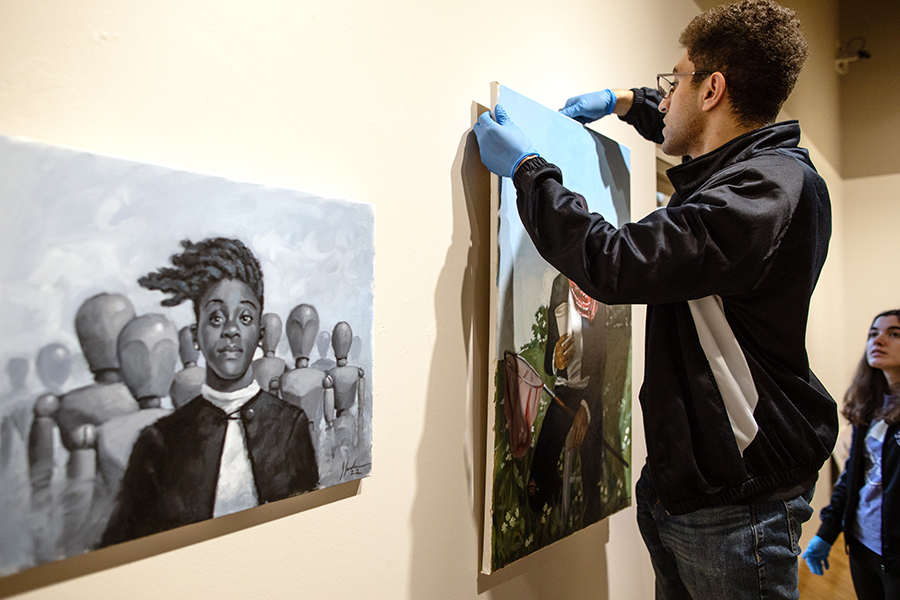
Brian Michael, a media arts and game development student from Sycamore, Illinois, hangs 12 works by painter Jerry Jordan at Roberta’s Art Gallery on Jan. 25, 2023.
“Problem solving is pretty much the fun part of programming,” he said.
As a result of his success, Michael has another fun problem to solve — how to market and sell Primis to art galleries.
Written by Craig Schreiner | Photos by Craig Schreiner
Link to original story: https://www.uww.edu/news/archive/2023-03-art-gallery-magd-major
